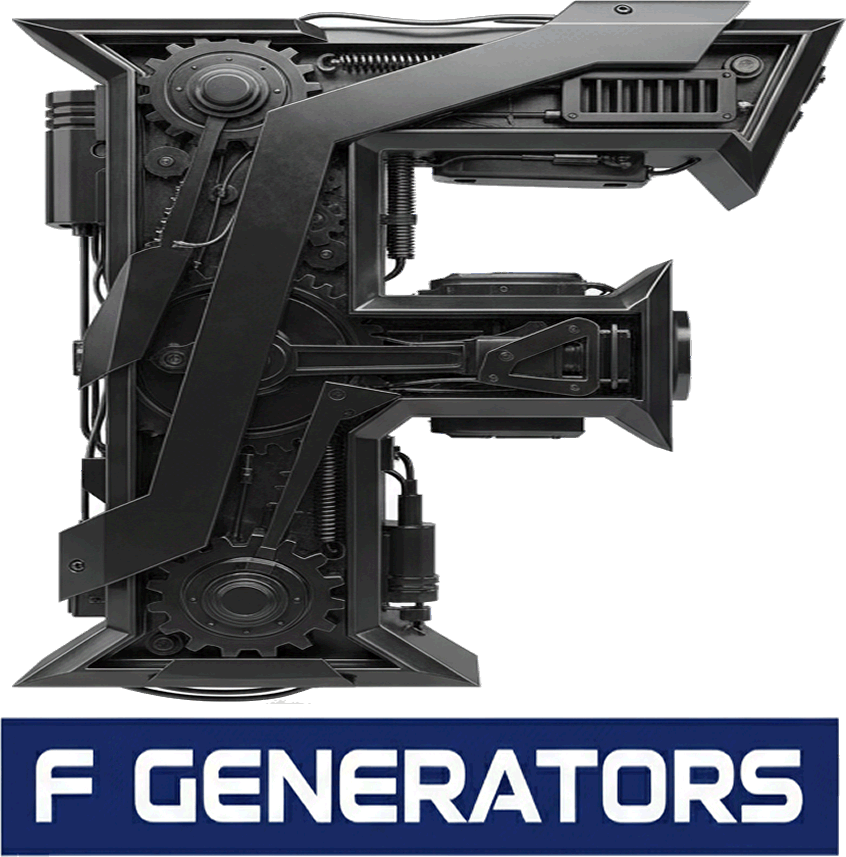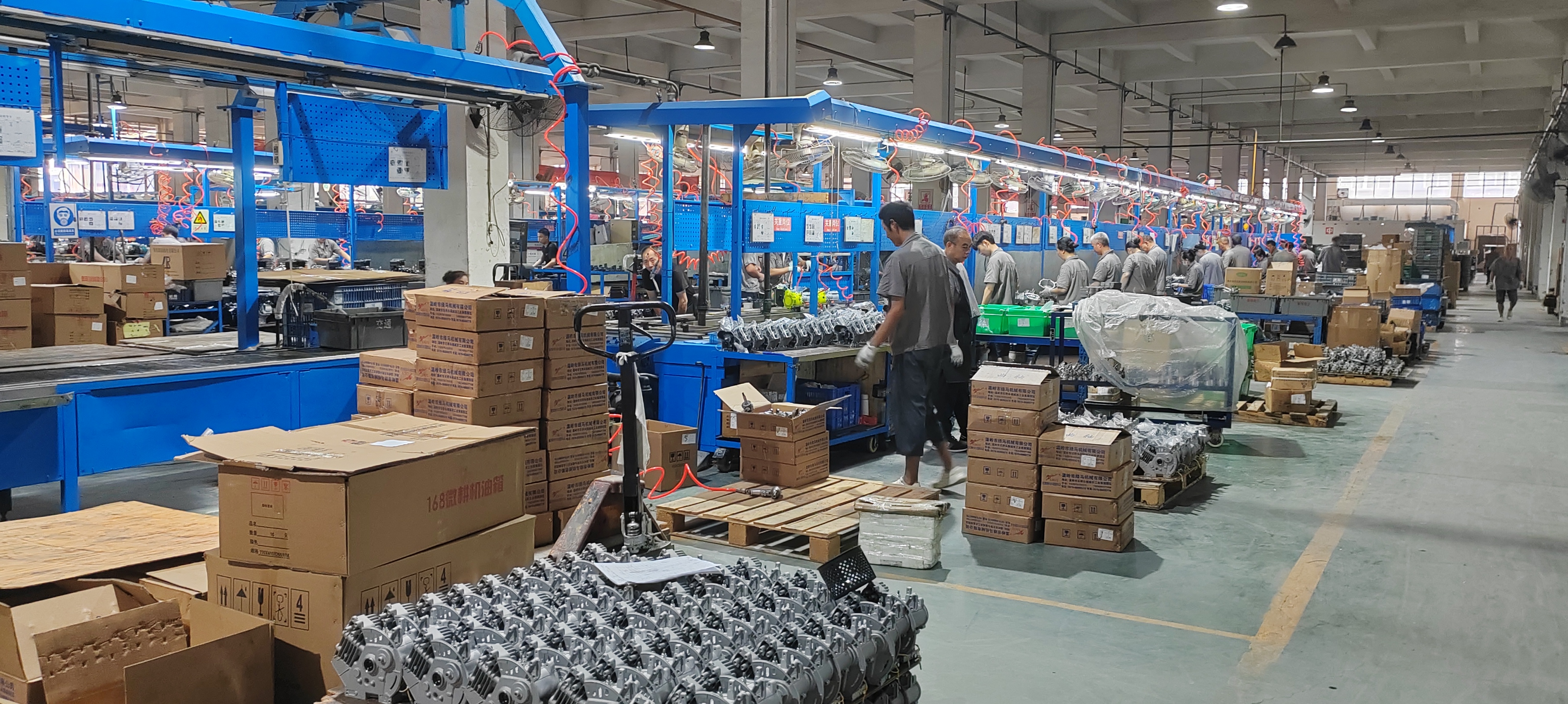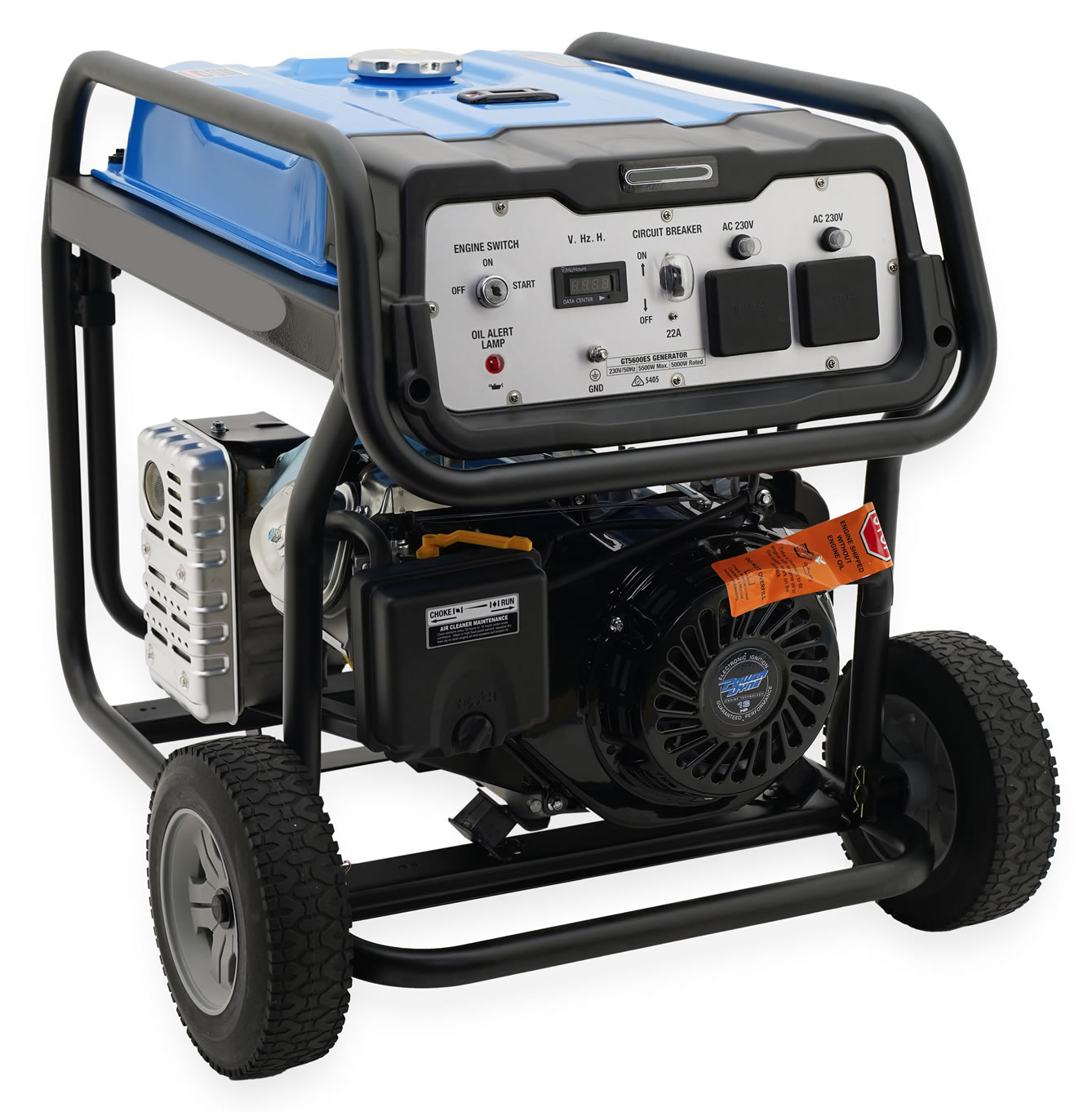You’ve seen the glossy brochures and the tempting price lists. The communication has been flawless. You believe you’ve found the perfect generator manufacturer for your next big shipment. But beneath that polished surface, a single, unasked question could be the trigger for a logistical nightmare that costs you your capital and your reputation. Before you sign that contract, stop. This isn’t just another checklist. This is your shield, your interrogation guide, and the key to differentiating a true partner from a disastrous liability. The answers to these 15 questions will define your future success.
You’re not just buying steel, copper, and circuits. You’re investing in trust. You’re purchasing the power to keep lights on, businesses running, and families safe. When you import a container of generators, you’re staking your reputation and a significant amount of capital on a promise made by a supplier who may be thousands of miles away.
This is a high-stakes dance, and every step matters. A misstep doesn’t just mean a faulty product; it means angry customers, logistical chaos, and a balance sheet bleeding red ink. How do you ensure the partner you choose is the real deal?
You learn to ask the right questions. Not the superficial questions about price and delivery time, but the deep, probing questions that peel back the layers of marketing and reveal the true core of a generator manufacturer. These 15 questions are your scalpel. Use them to dissect every potential supplier, and you will build a business on a foundation of rock-solid reliability.
Part 1: Unmasking the Identity (The Company Itself)
Before you even talk about an engine or an alternator, you must know exactly who you are dealing with. A beautiful website can hide a thousand sins. These first questions are designed to shine a light into the shadows.
1. “Could you please provide a copy of your business license and explain its registered scope of business?”
Why it’s Critical: This is the bedrock of due diligence. In China, for example, a business license isn’t just a piece of paper; it’s a detailed profile. It will tell you if they are legally registered as a “manufacturer” (生产) or merely a “trader” (贸易). It confirms their registered capital, a rough indicator of their scale. If a supplier claiming to be a massive portable generator factory has a registered scope for “office supplies,” you have your first, and perhaps last, red flag.
What You Want to Hear: “Of course, here is our license. As you can see, our scope is registered for the manufacturing and R&D of power generation equipment. We’ve been operating under this license for over 15 years.”
The Hook: Knowing their legal status is step one. But many companies can legally register as a manufacturer without owning a single machine. Your next question must cut to the heart of this deception…
2. “Are you a direct factory or a trading company? If a factory, do you own it entirely, or is it a joint venture?”
Why it’s Critical: This question draws a line in the sand. Trading companies can be valuable partners, offering consolidation and communication ease, but they add a layer of cost and remove you one step from the source of quality control. A direct factory gives you more control and better pricing. Knowing if it’s a joint venture is also crucial, as it can impact decision-making speed and company culture.
What You Want to Hear: “We are the 100% owner of our factory in the Shandong province. We would be happy to arrange a video tour for you next week, or an in-person audit when you’re able.” Anything less than complete transparency should raise your guard.
The Hook: So, they own the factory. Excellent. But do they build what you want to buy, or is your product just a side-hustle for them?
3. “What is your core product specialization? What percentage of your output is diesel generators versus portable inverters?”
Why it’s Critical: The world of generators is vast. A factory that excels at producing robust, high-kilowatt diesel gensets for industrial use may have little expertise in the finely-tuned electronics of a pure sine wave inverter generator wholesale business. You want a specialist, not a generalist dabbling in your product category. Their passion and engineering prowess should align with your needs.
What You Want to Hear: “Our soul is in industrial power. 80% of our production is dedicated to 50kW to 500kW diesel generators. It’s where our R&D is focused, and it’s what our engineers live and breathe.”
The Hook: A specialist knows their craft, but in a global market, words and passion aren’t enough. You need proof that their expertise is recognized by international standards.
4. “What international quality and safety certifications do you hold? (e.g., ISO 9001, CE, EPA, EURO V)”
Why it’s Critical: Certifications are non-negotiable gatekeepers. ISO 9001 speaks to their quality management processes. CE is essential for the European market, proving conformity with health, safety, and environmental standards. EPA (Environmental Protection Agency) and CARB certifications are mandatory for selling in much of the United States. A supplier without the correct certifications for your target market is a non-starter.
What You Want to Hear: “We are ISO 9001 certified. All our diesel models are CE and EURO V compliant, and our portable inverter line has full EPA certification. We can provide the certification numbers and accredited testing bodies for your verification.”
The Hook: Certifications prove they can follow the rules. But the rules don’t build a great generator. The components do. Your next line of questioning must go inside the machine…
Part 2: Deconstructing the Machine (Product & Technical Prowess)
This is where you transition from a business auditor to an engineering detective. The quality of a generator is the sum of its parts.
5. “What brands of engines and alternators do you use? Can you provide specification sheets for these core components?”
Why it’s Critical: The engine and alternator are the heart and soul of any generator. World-class brands like Cummins, Perkins, or Yamaha are known quantities. Some Chinese brands like Yuchai or Weichai are also industry powerhouses. A supplier who is cagey about their core component sourcing, or uses no-name, unverified parts, is gambling with your money. This is where a supplier like KingKong Power, known for its obsessive focus on robust engine components, truly shines.
What You Want to Hear: “For our premium line, we use genuine Perkins engines paired with Stamford alternators. For our more economical line, we use a top-tier domestic brand with whom we have a 10-year engineering partnership. Here are the full technical data sheets for both.”
The Hook: Knowing the components is great, but what if your market has unique needs? A truly great partner doesn’t just sell; they collaborate.
6. “What is your capability for customization (OEM/ODM)? Can you provide case studies of past custom projects?”
Why it’s Critical: Your brand needs a unique selling proposition. This might be a specific color, a custom control panel, a unique outlet configuration, or a special feature for a niche market. You need to know if the supplier is a rigid production line or a flexible engineering partner. Ask to see examples of their work. A top-tier OEM generator manufacturer will be proud to show you.
What You Want to Hear: “ODM is one of our strengths. Last year, we worked with a client in Australia to develop a dust-proof enclosure for the mining industry. We handled the design, prototyping, and testing. Let me send you the project portfolio.”
The Hook: A beautiful custom generator is useless if it fails under pressure. Now you must ask the question that separates the professionals from the amateurs: how do they prove it works?
7. “Can you walk me through your complete quality control and testing process for a finished unit?”
Why it’s Critical: A shocking number of factories only test a small percentage of units off the line. You need to know that every single unit that will bear your name has been rigorously tested. What do they test for? Voltage regulation? Load bearing capacity? Frequency stability? Safety shutoffs? For how long do they run the test?
What You Want to Hear: “Every single generator undergoes a 7-stage QC process. It ends with a 1-hour load bank test where we simulate 0%, 25%, 50%, 75%, 100%, and 110% load conditions while monitoring 15 key performance metrics. A signed report from the testing engineer is included in the packaging for each unit.”
The Hook: They test every unit. Fantastic. But who designs the product in the first place? Is their technology current, or are they selling you a ten-year-old design?
8. “Who leads your Research & Development team? What product innovations have you brought to market in the last 24 months?”
Why it’s Critical: This question reveals if you are partnering with a forward-thinking leader or a follower. A company that invests in R&D is a company that believes in its future. They are solving problems like fuel efficiency, noise reduction, and smart controls. You’re looking for partners who are innovating, much like the advanced, quiet inverter technology often pioneered by specialists like F Generators.
What You Want to Hear: “Our R&D is led by Dr. Liu, who has a Ph.D. in mechanical engineering. In the last year, we launched our new line of dual-fuel inverter generators with remote-start functionality via a smartphone app, reducing fuel consumption by 15%.”
The Hook: You’ve established they are a legitimate, innovative manufacturer with a quality product. Now, can they actually build your order on time and to scale? The next questions move from the lab to the factory floor.
Part 3: The Engine of Production (Capacity & Supply Chain)
An incredible prototype is meaningless if the factory can’t produce 500 of them reliably. This section tests their operational muscle.
9. “What are your standard production lead times and your current production capacity?”
Why it’s Critical: This simple question is vital for your own planning. “Lead time” isn’t just manufacturing time; it includes raw material sourcing, production scheduling, testing, and packaging. You need a realistic number to manage your cash flow and sales promises. You also need to know if your order of 500 units is a drop in the bucket for them or if it will strain their capacity to its limits.
What You Want to Hear: “Our standard lead time from deposit to ex-factory date is 35 days for orders under 1000 units. Our current monthly capacity for that model is 3,000 units, and we are currently operating at 70% capacity.” This is a clear, confident answer.
The Hook: A lead time is a promise. But that promise is built on a complex chain of other suppliers. How resilient is that chain?
10. “How do you manage your supply chain for critical components? Do you have alternative suppliers for engines or control modules?”
Why it’s Critical: The last few years have taught us all a brutal lesson about supply chain fragility. A single missing microchip can halt production for weeks. A sophisticated diesel generator supplier has a robust supply chain strategy. They have cultivated relationships with multiple suppliers for critical parts to mitigate risk from lockdowns, shipping crises, or geopolitical events.
What You Want to Hear: “We have three pre-qualified suppliers for our control panels and two for our alternators. We maintain a 60-day strategic stock of core components on-site to buffer against any sudden shortages. Our supply chain is something we audit quarterly.”
The Hook: They can make it, and they can source the parts. But what is the entry point for a partnership? The next question determines if you’re a good fit financially.
11. “What is your Minimum Order Quantity (MOQ), and what are your standard payment terms?”
Why it’s Critical: This is a practical hurdle. If their MOQ is a full container and you only want to test 20 units, the partnership is a non-starter. Payment terms (typically a 30% deposit and 70% before shipping) are standard, but understanding their flexibility can be key. A willingness to negotiate terms for a long-term partner is a very good sign.
What You Want to Hear: “Our MOQ is 50 units for that model to optimize production. Our standard terms are 30% T/T upfront and 70% upon presentation of the Bill of Lading copy, but for new partners with strong references, we can discuss 50% upon completion and QC inspection.”
The Hook: The deal is taking shape. The product is right, the factory is capable. But what happens after the sale? The final set of questions is arguably the most important of all. It’s about the future.
Part 4: The Covenant of Partnership (Support & Long-Term Value)
You are not looking for a transaction. You are looking for a partner who will stand behind their product when things go wrong.
12. “What is your warranty policy, and how do you handle a warranty claim from an overseas partner?”
Why it’s Critical: This is the moment of truth. A warranty is useless if the claim process is a nightmare. Will they send spare parts? Will they provide a credit? Will they require you to ship a 500-pound generator back to China? The process must be crystal clear, fair, and efficient.
What You Want to Hear: “We offer a 2-year or 1000-hour comprehensive warranty. For any claim, you simply send us a video and the serial number. Our engineers diagnose the issue within 24 hours. We then courier the necessary replacement parts via DHL at our expense, typically within 7 days. For systemic issues, we issue a credit on your next order.”
The Hook: A good warranty handles problems. A great partner helps you prevent them in the first place.
13. “Do you provide technical training, service manuals, and a readily available stock of spare parts?”
Why it’s Critical: Your local dealers and service centers need to be able to support the product. Can the supplier provide detailed, English-language service manuals and schematics? Can you order a full set of common spare parts (filters, starters, AVRs) with your main shipment? A supplier invested in your success will equip you to provide excellent after-sales service.
What You Want to Hear: “Absolutely. With your first order, we provide full digital access to our service portal with video tutorials and manuals. We also recommend a 2% spare parts package, and we can guarantee the availability of all critical parts for at least 7 years post-production.”
The Hook: You’ve covered the product and the problems. But who will you be talking to when you have a simple question on a Tuesday morning?
14. “Who will be my dedicated point of contact, and what are their working hours and English proficiency?”
Why it’s Critical: Communication can make or break an international business relationship. Being passed around to different departments is inefficient and frustrating. You need a single, dedicated account manager who understands your business, speaks your language fluently, and is available during hours that reasonably overlap with yours.
What You Want to Hear: “Your account will be managed by Susan, one of our senior sales engineers. She is fluent in English and has been with us for eight years. Her team works on a staggered schedule to ensure we have coverage for our European and North American partners until 10 PM Beijing time.”
The Hook: You’ve asked them everything. Now, it’s time to ask someone else. The final question is the ultimate truth serum.
15. “Can you provide me with two references for clients in a non-competing market, such as North America or Europe?”
Why it’s Critical: A confident supplier with a history of happy clients will not hesitate to provide references. This is your chance to talk to a peer who has already walked the path you are on. You can ask them directly about product quality, communication, and how the supplier handled problems. An unwillingness to provide references is the biggest red flag of all.
What You Want to Hear: “With their permission, of course. Let me connect you with our partner in Germany who has been distributing our portable generators for five years, and another in the USA who specializes in our diesel gensets for construction sites.”
Your Voyage to a Perfect Partnership
These 15 questions are more than a list. They are a journey. They take you from the legal foundation of a company, through the heart of its engineering, across its factory floor, and into the core of its customer relationships.
Don’t be afraid to ask the hard questions. The supplier who embraces this scrutiny, who answers with transparency, confidence, and pride, is not just trying to sell you a product. They are trying to earn your trust.
You are not just sourcing a generator manufacturer; you are forging a vital link in your business’s supply chain. Choose a partner who is as invested in your customers’ satisfaction as you are. Use this guide, trust your gut, and build an empire powered by reliability.




